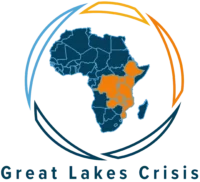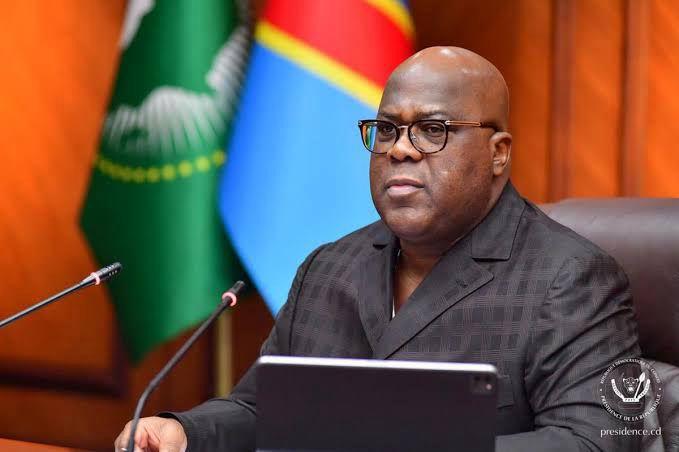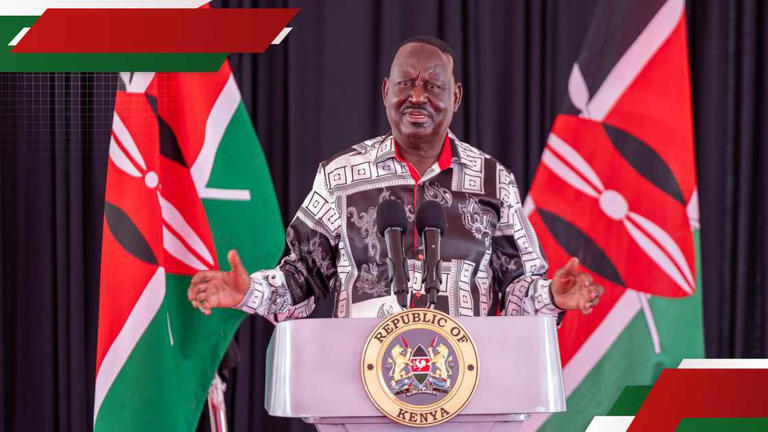The death of Raila Amolo Odinga on October 15, 2025, marked the end of a political era in Kenya, closing a chapter defined by resilience, charismatic leadership, and reformist vision. Odinga’s legacy is deeply etched in Kenya’s democratic evolution, Pan-African politics, and global advocacy for environmental and governance reforms. This paper analyzes his impact across three domains—national, continental, and global—while critically examining both his achievements and contradictions.
Drawing on political history, media reports, and scholarly perspectives, the analysis situates Odinga’s contributions within broader democratic trajectories in post-colonial Africa. His political career, spanning more than four decades, made him one of Kenya’s most recognizable and influential leaders. Born in 1945 to Jaramogi Oginga Odinga—a nationalist and Kenya’s first Vice President—Raila inherited not only a political name but also a tradition of resistance to centralized authoritarianism (Kenyan History, 2025). From his early activism in the 1980s and his pivotal role in Kenya’s multiparty transition in the 1990s to his tenure as opposition leader and later as Prime Minister (2008–2013), Odinga remained central to Kenya’s evolving democratic story.
His death has prompted reflection in Kenya, across Africa, and globally—not merely on what he accomplished, but on what his career reveals about democratization as a process, with particular attention to institutional reforms, political culture, and symbolic leadership.
Raila Odinga’s Legacy in Kenya
Raila Odinga’s legacy in Kenya is defined by his profound and enduring influence on the country’s democratic development, political culture, peacebuilding, grassroots mobilization, and environmental leadership. From his early activism challenging the one-party state in the 1980s—marked by detention without trial for alleged involvement in a coup attempt (The Guardian, 2025)—to his pivotal role in the enactment of the 2010 Constitution, Odinga consistently championed democratic and constitutional reform (Kenyan History, 2025). He helped restructure governance through devolution, strengthened checks on executive power, and expanded political representation beyond Nairobi, reshaping Kenya’s institutional landscape even without holding the presidency.
Odinga also demonstrated a capacity for pragmatic leadership in moments of national crisis. During the 2007–2008 post-election violence, which resulted in over 1,000 deaths and widespread displacement (AP News, 2025), he entered a power-sharing agreement as Prime Minister, prioritizing national cohesion over political rivalry and stabilizing the country (The Star, 2025). Beyond formal politics, he became a symbol of grassroots mobilization, connecting with marginalized communities, youth movements, and pro-democracy groups (Standard Media, 2025). His inclusive approach and broad-based alliances, reflected in his nickname “Baba,” amplified historically silenced voices and expanded political participation, though not without contributing to heightened political competition.
As a statesman, Odinga also embraced environmental and economic leadership, promoting conservation of the Mau Forest and Lake Victoria while linking ecological stewardship with sustainable development and climate justice (Big 3 Africa, 2025). By framing climate action as integral to economic growth and social well-being, he positioned Kenya as an active participant in global environmental governance. In sum, Odinga’s legacy transcends electoral politics, blending democratic reform, crisis management, grassroots empowerment, and visionary leadership into a defining imprint on Kenya’s modern political and social fabric.
Raila Odinga’s Legacy in Africa
Raila Odinga’s influence extended far beyond Kenya, establishing him as a respected Pan-African statesman and diplomat. Evolving from a national opposition leader to a figure of continental significance, he exemplified transnational activism rooted in democratic governance, regional integration, and developmental pragmatism. Odinga’s impact on Africa can be seen through his Pan-African diplomatic engagements, his model of opposition leadership, and his advocacy for infrastructure-led development and economic connectivity.
As African Union High Representative for Infrastructure Development in 2018, he promoted regional connectivity, trade integration, and cross-border collaboration, reflecting his commitment to stronger economic and political bonds among African nations (Le Monde, 2024). His later expression of interest in chairing the African Union Commission further demonstrated his standing as a continental statesman. Odinga’s diplomatic efforts illustrated how non-executive leaders can shape continental priorities through moral authority, strategic alliances, and visionary leadership.
His long tenure as an opposition leader offered a model of structured, legitimate, and enduring opposition, inspiring pro-democracy movements in countries such as Uganda, Zimbabwe, and Nigeria (Geeska Africa, 2025). By contesting power peacefully and holding governments accountable within constitutional frameworks, Odinga helped normalize opposition politics as a critical pillar of democratic governance, gaining moral and political authority without occupying the presidency.
In addition, Odinga championed transnational infrastructure development and regional economic integration, aligning his vision with the African Continental Free Trade Area (AfCFTA) (Geeska Africa, 2025). He advocated for transport corridors, energy linkages, and other large-scale projects to enhance trade, mobility, and economic growth across borders. By prioritizing pragmatic, action-oriented solutions over ideological Pan-Africanism, Odinga bridged historical continental ideals with contemporary developmental needs, reinforcing his legacy as a modern architect of African cooperation and integration.
Raila Odinga’s Global Legacy
Raila Odinga’s impact transcended Africa, establishing him as a figure of global significance. His political journey—marked by resistance, reform, and visionary leadership—resonated with democratic movements and climate advocates worldwide. While his influence was rooted in Kenya and the continent, his moral authority and reformist ideals earned him recognition in international forums as a voice for democratic struggle, environmental stewardship, and global justice.
Odinga’s personal and political story stands as a powerful symbol of democratic resistance on the international stage. Despite enduring imprisonment, electoral injustice, and prolonged political marginalization, he remained committed to change through constitutional and non-violent means (AP News, 2025). This steadfast dedication elevated his status beyond national politics, aligning him with other iconic reformers who influenced national trajectories without necessarily holding executive power. Through his resilience and advocacy, Odinga demonstrated that transformative leadership can emerge from persistent opposition and moral conviction, contributing to global debates on governance, justice, and sustainability.
Critical Reflections and Contradictions
Raila Odinga’s political legacy, while significant, is not without its complexities and contradictions. His decades-long career was marked by remarkable achievements in democratic reform, peacebuilding, and Pan-African advocacy, yet it also revealed the limits and challenges of long-term political leadership in Kenya and beyond. Several key tensions characterize this legacy, reflecting both personal and structural dynamics in the country’s political landscape.
Despite his repeated bids for the presidency, Odinga never succeeded in attaining the nation’s highest office, prompting debates over whether strategic miscalculations, electoral manipulation, or systemic barriers were responsible (Kenyan History, 2025). This unrealized ambition underscores the paradox of his influence: while he shaped Kenya’s democratic infrastructure and public discourse, ultimate executive power eluded him.
The 2018 rapprochement with President Uhuru Kenyatta, popularly known as “the Handshake,” exemplifies the duality of his approach to politics. While it fostered national calm and helped stabilize the country after years of political tension, it alienated some loyal supporters who felt the compromise undermined principles of accountability and electoral justice (The Star, 2025). Similarly, his long-standing emphasis on ethnic-based coalition-building, though effective in mobilizing support and enhancing inclusion for marginalized communities, also contributed to perceptions of ethnic polarization, illustrating the delicate balance between representation and division in Kenya’s political context.
By the 2020s, a generational shift in Kenyan politics further complicated Odinga’s legacy. Many young voters and emerging political actors associated him with the old guard, highlighting a tension between his historic contributions and the aspirations of a new, increasingly youthful electorate. These contradictions—between national acclaim and localized criticism, between reformist ideals and political pragmatism—paint a nuanced portrait of a leader whose impact was profound yet inherently complex.
Conclusion
Raila Odinga’s legacy demonstrates that institutions can outlast individuals, with the 2010 Constitution standing as a testament to the transformative power of structural reforms in shaping political futures beyond personal ambition. His enduring influence also underscores that moral authority and principled leadership are forms of power that extend beyond formal state office. His career reflects the incremental and often uneven nature of democratization in postcolonial Africa, showing how persistent activism and strategic engagement can produce lasting impact. Odinga’s evolution from opposition activist to Pan-African diplomat and global climate advocate mirrors Kenya’s own trajectory from domestic struggles to active participation in international affairs. Ultimately, his story will be remembered as a complex balance between reform and compromise, resistance and accommodation, idealism and realpolitik—a legacy both revered and contested, whose significance will continue to inform democratic, continental, and global discourses for years to come.
References
AP News. (2025, October 15). Former Kenyan prime minister Raila Odinga, a key figure in African democracy efforts, dies at 80. Retrieved from https://apnews.com
Big 3 Africa. (2025, October 15). Raila Odinga remembered for courageous environmental leadership in Kenya. Retrieved from https://big3africa.org
Geeska Africa. (2025, October 15). Africa mourns Raila Odinga: The passing of a Pan-African icon. Retrieved from https://www.geeska.com
KenyanHistory. (2025). Raila Odinga: Political life and legacy in Kenya. Retrieved from https://kenyanhistory.com
Le Monde. (2024, March 16). Union africaine: Le Kenyan Raila Odinga veut conquérir la présidence de la Commission. Retrieved from https://www.lemonde.fr
Standard Media. (2025). How Raila shaped Western Kenya’s political landscape for decades. Retrieved from https://www.standardmedia.co.ke
The Guardian. (2025, October 15). Raila Odinga, towering Kenyan opposition figure, dies aged 80. Retrieved from https://www.theguardian.com
The Star. (2025, October 15). World leaders mourn Raila, hail his Pan-Africanism. Retrieved from https://www.the-star.co.ke


